Enhance postpartum well-being with our premium New Moms Health Mix Powder. Packed with essential nutrients, this blend supports recovery and nourishment. Buy now for a healthy start on your motherhood journey.
The postpartum period, also known as the “fourth trimester,” is a time of significant physical and emotional changes for new moms. New moms face a variety of challenges after baby delivery, and these difficulties can vary from person to person. Here are some common challenges that many new mothers may encounter:
- Physical Recovery: Recovering from childbirth, whether through vaginal delivery or cesarean section, involves physical discomfort and healing. Postpartum pain, soreness, and fatigue are common, and it takes time for the body to return to its pre-pregnancy state.
- Hormonal Changes: The dramatic hormonal fluctuations that occur after childbirth can lead to mood swings, feelings of sadness, and in some cases, postpartum depression or anxiety. Hormonal changes can affect a mother’s emotional well-being during the postpartum period.
- Sleep Deprivation: Newborns typically have irregular sleep patterns, and frequent waking during the night for feedings can result in significant sleep deprivation for new moms. Lack of sleep can impact mood, cognitive function, and overall well-being.
- Breastfeeding Challenges: While breastfeeding is a natural process, it can present challenges such as latching difficulties, nipple pain, engorgement, and concerns about milk supply. Some mothers may find breastfeeding to be more challenging than expected.
- Adjusting to New Responsibilities: Caring for a newborn is demanding, and adjusting to the responsibilities of parenthood can be overwhelming. New moms often need to balance caregiving tasks with self-care and may struggle with finding a routine that works for them and their baby.
- Emotional and Psychological Adjustments: The emotional adjustment to motherhood involves a range of feelings, including joy, love, anxiety, and sometimes guilt or doubt. Navigating these emotions and adjusting to the new identity as a mother can be complex.
- Body Image Concerns: Changes in body shape, weight, and overall appearance after childbirth can contribute to body image concerns. Society’s expectations and pressure to “bounce back” quickly can add to the stress new moms may feel about their bodies.
- Relationship Changes: The arrival of a new baby can strain relationships, including the one between partners. Adjusting to new roles and responsibilities can be challenging, and communication becomes essential for maintaining a healthy relationship.
- Isolation and Loneliness: New moms may feel isolated or lonely, especially if they are the primary caregiver during the day. Lack of adult interaction and social support can contribute to feelings of loneliness.
- Time Management: Finding time for self-care, household chores, and personal activities can be challenging with a newborn. Time management becomes crucial, and some moms may struggle to prioritize their needs alongside the demands of caring for a baby.
It’s important for New Moms Health Mix to recognize that facing difficulties postpartum is normal and seeking support is a sign of strength. Connecting with healthcare professionals, joining support groups, and leaning on friends and family for assistance can help address these challenges and make the postpartum period more manageable. Every new mother’s experience is unique, and acknowledging and addressing individual needs is crucial for a smoother transition to motherhood.
Essential Tips: What New Moms Need for Postpartum Recovery After Baby Delivery
Recovery after childbirth is a crucial phase for new moms, and meeting their physical and emotional needs is essential for a healthy postpartum experience. Here are some key aspects that new moms may need for recovery:
- Rest and Sleep:
- Adequate rest is crucial for the body to heal after childbirth. New moms should aim to get as much sleep as possible, even if it comes in short, frequent naps.
- Nutritious Diet:
- A well-balanced and nutritious diet is important for postpartum recovery. Focus on foods rich in vitamins, minerals, and protein to support healing and provide energy.
- Hydration:
- Staying hydrated is important, especially if breastfeeding. Drinking enough water helps with milk production and overall well-being.
- Pain Management:
- Pain management is essential, particularly for those who have undergone vaginal delivery or a cesarean section. Over-the-counter pain relievers or prescribed medications, as recommended by a healthcare provider, can help manage pain.
- Perineal Care:
- For those who had a vaginal delivery, proper perineal care is important. This may include using a peri bottle, sitz baths, and keeping the area clean to promote healing.
- Support for Breastfeeding:
- If breastfeeding, seek support from lactation consultants or healthcare professionals to ensure proper latching, positioning, and addressing any breastfeeding challenges.
- Emotional Support:
- Emotional well-being is crucial during the postpartum period. New moms may experience a range of emotions, and having a supportive network of family and friends, or even joining a postpartum support group, can be beneficial.
- Assistance with Household Tasks:
- New moms should avoid overexertion and focus on recovery. Family and friends can assist with household chores, meal preparation, and other responsibilities to allow the new mom to rest and care for the baby.
- Postpartum Checkups:
- Regular postpartum checkups with healthcare providers are important for monitoring physical recovery, addressing any concerns, and ensuring that the mother is healing properly.
- Physical Activity:
- Gradual and gentle physical activity can aid in recovery. Consult with a healthcare provider before resuming any exercise routine.
- Time for Self-Care:
- New moms should make time for self-care activities that bring them joy and relaxation, whether it’s taking a warm bath, reading a book, or simply having some quiet time.
- Communication and Openness:
- It’s crucial for new moms to communicate openly about their physical and emotional well-being with healthcare providers, partners, and support networks.
Remember, every woman’s postpartum experience is unique, and individual needs may vary. Seeking guidance from healthcare professionals and surrounding oneself with a supportive network can contribute to a smoother recovery process.
Our Certified Health Mix Powder – Ideal Nutrition for New Moms Postpartum
We are proud to present our lab-tested and certified New Moms Health Mix powder, designed to meet the nutritional needs of your precious little ones. Our product has undergone rigorous testing to ensure its safety and quality. Our product is designed to provide essential nutrients for New Moms Health Mix.
Key Features of our Health Mix:
- Lab Tested: Rigorously tested in a certified laboratory for safety and quality assurance.
- Certified: Our health mix powder is officially certified for infant consumption.
- Nutrient-Rich: Packed with essential nutrients to support your baby’s growth and development.
- Gentle on Tiny Tummies: Formulated with care to be gentle on delicate digestive systems.
The perfect solution for new moms’ postpartum nutrition with our Certified New Moms Health Mix Powder. Packed with essential nutrients, it’s the ideal choice to support recovery and well-being during this special phase of motherhood.
Our New Moms Health Mix Powder
Postpartum Nutrition: Essential Nutrients for New Moms’ Recovery After Baby Delivery
New moms have specific nutritional needs after childbirth to support recovery and promote overall well-being. Here are key nutrients that are often emphasized during the postpartum period:
- Protein:
- Essential for tissue repair and muscle recovery, protein is crucial for new moms. Good sources include lean meats, poultry, fish, eggs, dairy products, legumes, and nuts.
- Iron:
- Many women experience a drop in iron levels after childbirth, leading to fatigue. Iron-rich foods like lean meats, beans, lentils, spinach, and fortified cereals can help replenish iron stores.
- Calcium and Vitamin D:
- Important for bone health, calcium and vitamin D are vital during the postpartum period, especially if breastfeeding. Dairy products, fortified plant-based milk, leafy greens, and sunlight exposure are good sources.
- Fiber:
- Constipation is a common issue postpartum. High-fiber foods like whole grains, fruits, vegetables, and legumes can aid digestion and prevent constipation.
- Omega-3 Fatty Acids:
- Omega-3s support brain health and can be beneficial for both the mother and the baby, especially if breastfeeding. Fatty fish (like salmon), flaxseeds, chia seeds, and walnuts are good sources.
- Folate (Folic Acid):
- Folate is important for cell division and DNA synthesis. It’s particularly crucial during the postpartum period. Leafy greens, citrus fruits, beans, and fortified cereals are good sources.
- Vitamin C:
- Boosting the immune system and aiding in iron absorption, vitamin C is important for postpartum recovery. Citrus fruits, strawberries, bell peppers, and tomatoes are rich in vitamin C.
- Hydration:
- Staying well-hydrated is essential, especially if breastfeeding. Water, herbal teas, and hydrating foods like fruits and vegetables contribute to overall hydration.
- Complex Carbohydrates:
- Carbohydrates provide energy, which is crucial for new moms who may be experiencing sleep deprivation. Opt for whole grains, fruits, and vegetables for sustained energy.
- Zinc:
- Zinc supports the immune system and wound healing. Foods like lean meats, poultry, dairy products, nuts, and whole grains are good sources of zinc.
- Vitamin A:
- Important for vision and immune function, vitamin A can be obtained from orange and yellow fruits and vegetables, leafy greens, and dairy products.
- Magnesium:
- Magnesium is involved in muscle and nerve function, and it can help alleviate muscle cramps. Nuts, seeds, whole grains, and green leafy vegetables are good sources.
It’s important for New Moms Health Mix to focus on a well-balanced diet that includes a variety of nutrient-dense foods. Consulting with a healthcare professional or a registered dietitian can provide personalized guidance based on individual needs and dietary preferences. Additionally, taking any prescribed prenatal vitamins or supplements as recommended by a healthcare provider is important for filling potential nutritional gaps.
Here are list of our all products from Aarral Shop Online
Explore a diverse range of quality products available at Aarral Shop Online. From trendy fashion to essential gadgets, our curated list has something for everyone. Browse now and discover the perfect items to elevate your lifestyle!
Showing 1–32 of 79 results
- Sold By: Anbarasi
- Sold By: Aarral.in
- Sold By: Aarral.in
- Sold By: Anbarasi
- Sold By: Anbarasi
- Sold By: Anbarasi
- Sold By: Anbarasi
- Sold By: Aarral.in
- Sold By: Aarral.in
- Sold By: Aarral.in
- Sold By: Aarral.in
- Sold By: Aarral.in
- Sold By: Aarral.in
- Sold By: Aarral.in
- Sold By: Aarral.in
- Sold By: Aarral.in
- Sold By: Aarral.in
- Sold By: Aarral.in
- Sold By: Aarral.in
- Sold By: Aarral.in
- Sold By: Aarral.in
- Sold By: Aarral.in
- Sold By: Aarral.in
- Sold By: Aarral.in
- Sold By: Aarral.in
- Sold By: Aarral.in
- Sold By: Aarral.in
- Sold By: Aarral.in
- Sold By: Aarral.in
- Sold By: Anbarasi

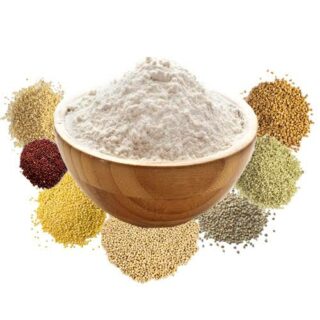









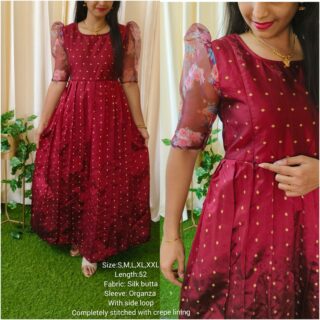




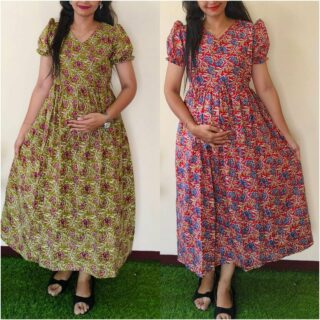





















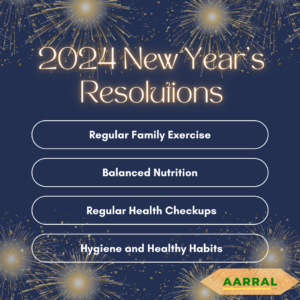
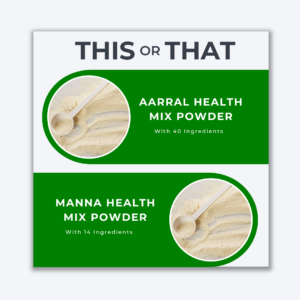

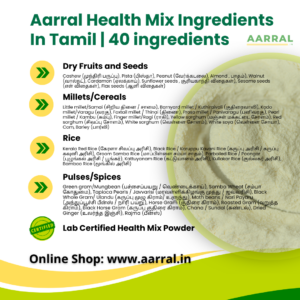


Leave a Reply